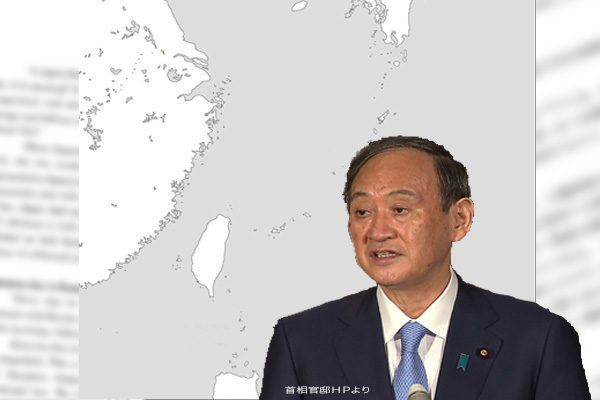A Japan-U.S. summit in Washington on April 16 represents U.S. President Joe Biden’s first face-to-face meeting with a foreign leader since his inauguration in January, indicating how the Biden administration emphasizes Japan, said Japanese Prime Minister Yoshihide Suga in a Fuji Television program on April 4. The usually stone-faced Suga looked proud of saying so. This is very good. But Suga should have spirit to vow what Japan would do as a U.S. ally at the coming bilateral summit, instead of either accepting U.S. requests or trying to explain why Japan cannot do so as seen in the past bilateral summits.
Shutting eyes to China’s human rights abuse
A matter of particular concern is that Japan may have different sense from other democracies including the U.S. over China’s human rights abuse. Since the days of the Trump administration, China has barbarously toughened control on Hong Kong and continued what is termed as “genocide” in the Xinjiang Uyghur Autonomous Region. Such human rights abuse has been combined with Beijing’s undue military and economic behaviors to increase global distrust in China.
Reflecting the Biden administration’s attitude of giving priority to enhancing U.S. alliances, a wave of criticism against Beijing’s crackdown on Uyghurs has grown rapidly. In solidarity with the United States, the United Kingdom, Canada and the European Union have imposed sanctions on China. Among the Group of Seven industrial democracies, Japan alone has not joined sanctions. Tokyo’s negative attitude toward sanctions on Beijing over crackdown on Hong Kong pro-democracy activists might also have been taken by the other G7 countries as abnormal.
Questioned on this point by reporters, Chief Cabinet Secretary Katsunobu Kato said that Japan has no law to impose sanctions directly or explicitly for the reason of human rights abuse. How would such Japanese attitude look to the U.S. taking leadership in human rights campaigns? Can Japan be a country that shuts eyes to human rights abuse for the reason of absence of relevant law, next to the U.S. that has expressed anger at what it termed genocide? How dare Japan asks for U.S. help in resolving North Korea’s abduction of Japanese citizens as a humanitarian issue?
Don’t make Japan-U.S. summit empty
Questioned how Japan would respond to a Taiwan contingency, a subject of recent warning by the U.S. military, Suga told the same TV program that he would like to refrain from answering a hypothetical question in his position. What would be a request on Taiwan from Biden who has apparently taken over Trump’s Taiwan policy? If a Taiwan contingency is judged as a “situation threatening Japan’s survival” under the peace and security legislation, the Japanese Self-Defense Forces can counter attacks on condition that armed attacks on a country having close relations with Japan would threaten Japan’ survival and pose a clear danger to people’s right to life. If Japan concludes that such contingency, if left untouched, would “seriously affect Japan’s peace and safety,” short of threatening its survival, Japan would provide logistic support for U.S. and other foreign forces.
How an actual Taiwan contingency would be is uncertain. But, would the JSDF limit its operations to logistic support when Japanese allies shed blood? Would Japan only provide logistic support even if the Kadena U.S. Air Force Base in Okinawa becomes a target of Chinese attack? Inward-looking American public opposing overseas wars would not tolerate such limited Japanese response. Unless the Japanese side offers some actions to take, the coming Japan-U.S. summit would end up being empty.
Tadae Takubo is Vice President of Japan Institute for National Fundamentals and a professor emeritus at Kyorin University.


